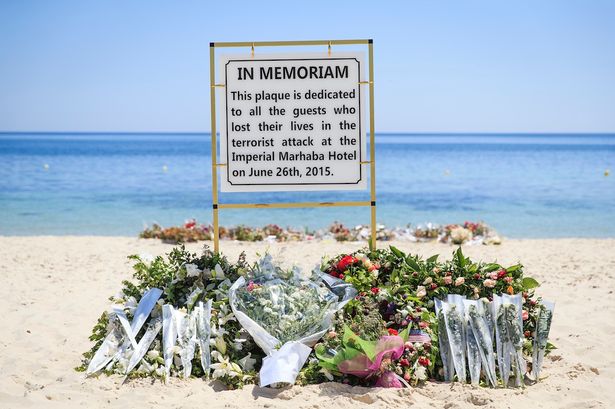-
Tips for becoming a good boxer - November 6, 2020
-
7 expert tips for making your hens night a memorable one - November 6, 2020
-
5 reasons to host your Christmas party on a cruise boat - November 6, 2020
-
What to do when you’re charged with a crime - November 6, 2020
-
Should you get one or multiple dogs? Here’s all you need to know - November 3, 2020
-
A Guide: How to Build Your Very Own Magic Mirror - February 14, 2019
-
Our Top Inspirational Baseball Stars - November 24, 2018
-
Five Tech Tools That Will Help You Turn Your Blog into a Business - November 24, 2018
-
How to Indulge on Vacation without Expanding Your Waist - November 9, 2018
-
5 Strategies for Businesses to Appeal to Today’s Increasingly Mobile-Crazed Customers - November 9, 2018
Tunisia declares state of emergency
The state of emergency temporarily gives the government more flexibility and the army and police more authority, and restricts the right of public assembly.
Advertisement
Authorities had already tightened security, deploying more than 1,400 armed officers at hotels and beaches.
The Tunisian prime minister’s communications adviser Dhafer Neji said: “Just as there have been security failures, there have also been political failures”. Essebsi said the state of emergency would last 30 days.
With a nationwide televised address, President Beji Caid Essebsi officially reintroduced urgent security measures for Tunisia that had been lifted in March 2014.
Security forces are under fire for not showing up to the area in time, after a gunman opened fire on tourists and in a hotel before being taken down by police. Neighbors of the gunman say he was brainwashed and can’t believe he committed this act.
Tunisian Prime Minister Habib Essid conceded in a BBC interview on Friday that the slow response of the police was a key problem. The Islamic State group assumed the responsibility for the attack.
Eight people have been arrested in suspicion of helping out the gunman, and the government says it has found links to those who planned the attack.
In reaction to militant recruiters, the Tunisian government has also said it will close 80 mosques that are operating illegally or preaching extremist messages. He said Tunisia specifically had been a target of the extremist group because it had a functioning, secular democracy.
In his speech on Saturday, Mr Essebsi spoke in general terms about the threat posed by Libya.
Tunisia was where the Arab Spring movement started when an unemployed young man burned himself alive in front of a local municipality after officials there repeatedly refused to help him or listen to him complaints.
Tunisia last had a state of emergency during the 2011 uprising against autocrat Zine el-Abidine Ben Ali.
“For the moment, this was Ansar al-Sharia who were behind this”, said the Tunisian security source.
Officials are expected to pass a counter-terrorism bill that has been in parliament since early 2014 in the coming weeks.
Advertisement
The beach massacre struck a huge blow to Tunisia’s tourism industry, prompting thousands of holidaymakers to leave and causing an estimated US$500 million in losses for a sector that makes up seven percent of the economy.





























